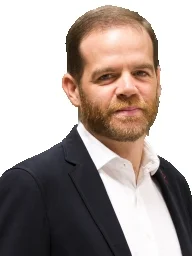Financial Times ranks Esade amongst the top 10 European business schools for executive education
Financial Times has once again included Esade amongst the top ten business schools for executive education, ranking it 8th in Europe (11th worldwide). The publication thus recognises Esade’s commitment to executive education and lifelong learning. According to Andrés Raya, executive director of Esade’s Executive Education portfolio, ‘This recognition is a powerful endorsement of Esade’s learning model, underscoring our commitment to a quality learning experience.’ ‘Our unique value proposition, based on digitisation, blends personalised follow-up, interaction with teachers, and synchronous and asynchronous learning dynamics’, he added.
The strong showing was made possible in part by the high scores Esade Executive Education received in the categories of new skills and learning, where it ranked 4th in Europe, and, especially, learning experience. In the latter category, Esade had the top-ranked 360º Learning Experience, thanks to its outstanding performance in the areas of participant profile, the design of tailored programmes for professionals and companies, and support for putting acquired knowledge into practice.
Top marks for participant and company satisfaction
The Financial Times Executive Education Rankings are compiled based on the opinions of participants and an assessment of the degree of internationalisation of the programmes, which are divided into two categories: open-enrolment programmes, where Esade Executive Education ranked 7th in this year’s edition (15th worldwide), and customised programmes for companies, where it ranked 9th (11th worldwide).
With regard to customised programmes, Esade Executive Education stands out for the high level of company satisfaction, ranking 8th in methodology and 9th in faculty excellence. ‘These rankings reflect Esade’s constant contact with the corporate world, where it helps companies identify and meet both current and future needs’, specified Raya. ‘Thanks to its research centres, which create knowledge, Esade has built an ecosystem that not only allows us to lead today’s changeable world, but also drive it.’
The Financial Times also highlighted the high level of satisfaction of participants in Esade Executive Education open-enrolment programmes, placing the institution in the top 10 for all variables in this category. Esade ranks 4th in new skills and learning, 4th in post-graduation follow-up, 6th in pre-programme preparation, 7th in the tailoring of programmes to the business world’s needs, and 9th in teaching methods. In this area, the Programme Portfolio director stressed the institution’s commitment to expanding its digital capabilities. ‘Amongst other things, our In·On programmes (60% online, 40% face-to-face) have revolutionised Esade’s teaching methodology, allowing us to even further boost the level of student achievement and learning.’
Pioneers in digital training
Esade’s positioning amongst the world’s top business schools according to the Financial Times is also the result of the institution’s commitment to digitisation. It is a leap forward that seeks to respond to a world in constant flux that calls for greater flexibility and customisation. Additionally, the specialisation of each Esade Executive Education programme equips participants with the tools they need to successfully face the challenges posed by the digitisation of the economy and business.
‘Esade Executive Education focuses on developing the competences that the companies and economy of the future will require’, added Raya. ‘We have thus designed programmes such as our Influential Leadership or Business Agility courses. We also firmly believe that all programmes should teach the language of the 21st century, i.e. digital, and we include STEM (science, technology, engineering and mathematics) subjects across our entire training offer.’ ‘These disciplines are addressed in depth in specialised programmes, such as those on fintech, legaltech, digital transformation, artificial intelligence, and digital twins, amongst others’, he concluded.




